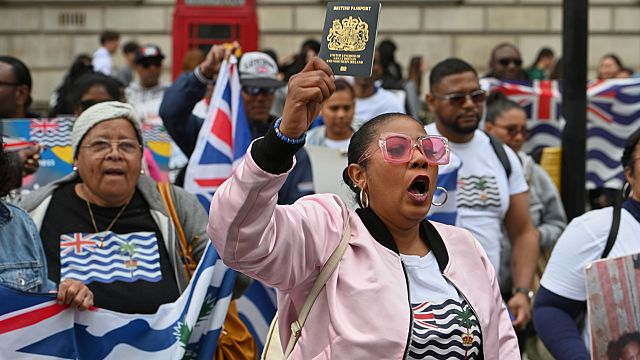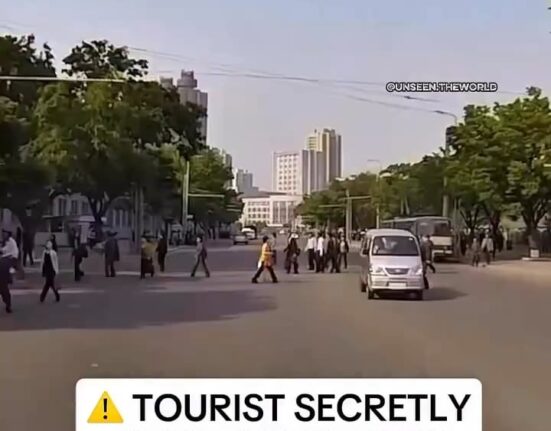With the stroke of a pen, the British government made a momentous decision that reverberated across continents and oceans. The signing of a deal to transfer sovereignty of the Chagos Islands to Mauritius marked the end of an era and the beginning of a new chapter in the complex history of these strategically significant isles. Amidst legal challenges and geopolitical implications, this move has far-reaching consequences that intertwine the past, present, and future of this remote archipelago in the Indian Ocean.
Background Context
Since 1814, the Chagos Islands had been under British control, serving as a vital outpost for the UK’s military interests. However, the path to this transfer of power traces back to the contentious decision made in 1965 when Britain detached the Chagos Islands from Mauritius, its former colony. This move, just three years before Mauritius gained independence, laid the foundation for a series of events that would shape the destiny of the Chagossian people and the geopolitical landscape of the region.
Main Story Details
After decades of legal battles and diplomatic tussles, the British government, under Prime Minister Keir Starmer, finalized the agreement to hand over sovereignty of the archipelago to Mauritius. This decision was not merely symbolic; it had tangible implications, especially concerning the future of the US-UK military base located on Diego Garcia, the largest island in the Chagos archipelago.
Prime Minister Keir Starmer emphasized the strategic importance of the handover:
“This is absolutely vital for our defense and intelligence, and therefore, for the safety and security of the British people. The full assessment of why this is so important is highly classified.”
In a significant move, the UK agreed to pay Mauritius 101 million pounds annually to lease back the military base for a minimum of 99 years. This financial arrangement underscored the intertwined interests of both nations and the delicate balance of power in the region.
However, the path to this agreement was not without obstacles. A last-minute injunction, prompted by a legal challenge from two Chagossian women, briefly stalled the signing ceremony. The judicial back-and-forth highlighted the complexities and sensitivities surrounding the transfer of control and the historical grievances of the displaced Chagossian community.
The Chagos Islands, particularly Diego Garcia, have played a pivotal role in supporting US military operations spanning decades, from the Vietnam War to the conflicts in Iraq and Afghanistan. The strategic significance of this military base cannot be overstated, making the handover a delicate balancing act between historical justice and geopolitical realities.
Expert Analysis
Experts in international relations and military strategy have offered insights into the implications of this handover. Dr. Emily Carter, a geopolitical analyst, noted, “The transfer of sovereignty over the Chagos Islands represents a significant shift in the geopolitical dynamics of the Indian Ocean region. It reflects a broader trend of former colonial powers reassessing their territorial holdings in light of contemporary security challenges.”
Moreover, the legal precedents set by the International Court of Justice’s ruling in 2019, which deemed the UK’s separation of the Chagos Islands from Mauritius unlawful, added a layer of complexity to the negotiations. The delicate dance between historical injustices and strategic imperatives underscored the nuanced nature of modern statecraft.
Broader Implications
Beyond the immediate transfer of control, the handover of the Chagos Islands to Mauritius holds broader implications for regional stability and global power dynamics. The agreement signals a willingness on the part of the UK to reckon with its colonial past and navigate a path forward that balances security concerns with legal and moral obligations.
Furthermore, the involvement of Mauritius, a nation grappling with its own economic and geopolitical challenges, in managing the military base on Diego Garcia raises questions about the shifting alliances and dependencies in a world where traditional power structures are being reconfigured.
Future Outlook
As the dust settles on this historic agreement, the focus shifts to the future trajectory of the Chagos Islands and the implications for the displaced Chagossian community. The creation of a resettlement fund to assist displaced islanders in returning to their homeland, excluding Diego Garcia, opens up possibilities for reconciliation and justice after decades of displacement and marginalization.
However, questions linger about the practicalities and timelines of such resettlement efforts, as well as the broader geopolitical ramifications of this transfer of control. The strategic importance of the military base on Diego Garcia ensures that the Chagos Islands will remain at the crossroads of global power dynamics for the foreseeable future.
Conclusion
In conclusion, the handover of the Chagos Islands to Mauritius represents a watershed moment in the history of these remote outposts. It signifies a convergence of historical grievances, geopolitical realities, and strategic imperatives that encapsulate the complexities of modern statecraft.
As the sun sets on the era of British control over the Chagos Islands, a new chapter begins—one that promises to reshape the contours of power in the Indian Ocean region and offer hope for a more equitable future for the Chagossian people. The echoes of this decision will reverberate far beyond the shores of Diego Garcia, reminding us of the enduring legacies of colonialism and the possibilities for reconciliation and justice in a rapidly evolving world.
Source: Africa News
Originally reported by Africa News
Read more at: http://www.africanews.com/2025/05/22/britain-hands-over-control-of-chagos-islands-to-mauritius/









Leave feedback about this